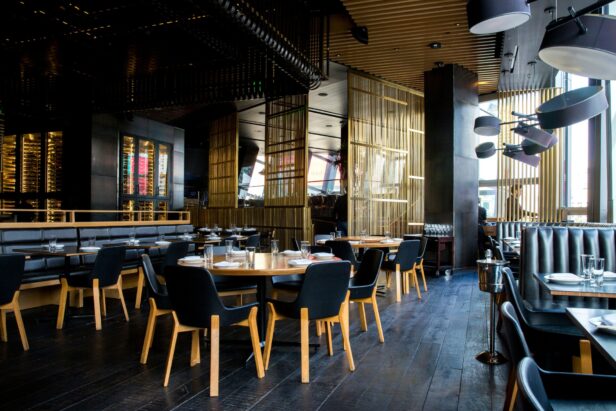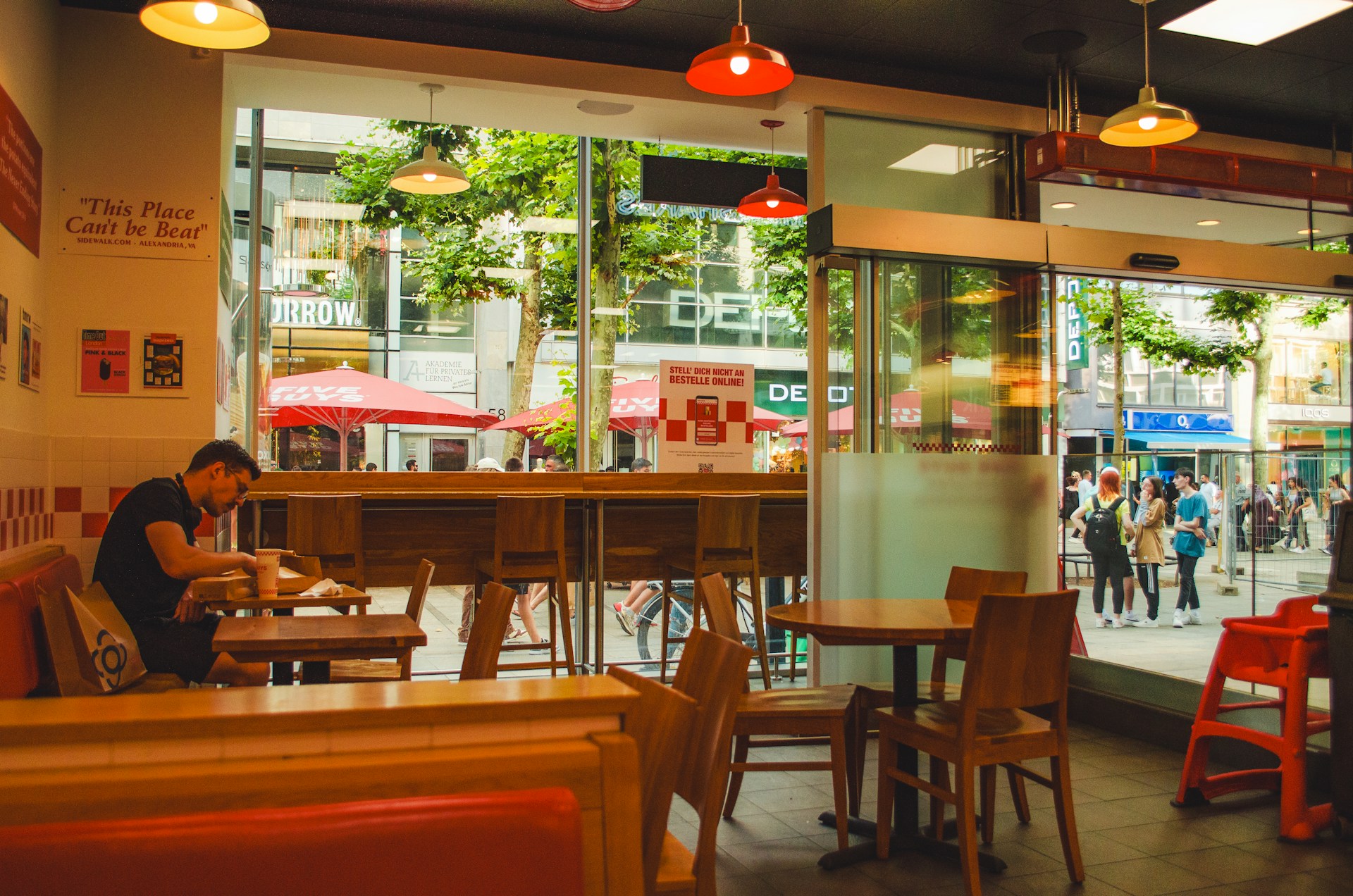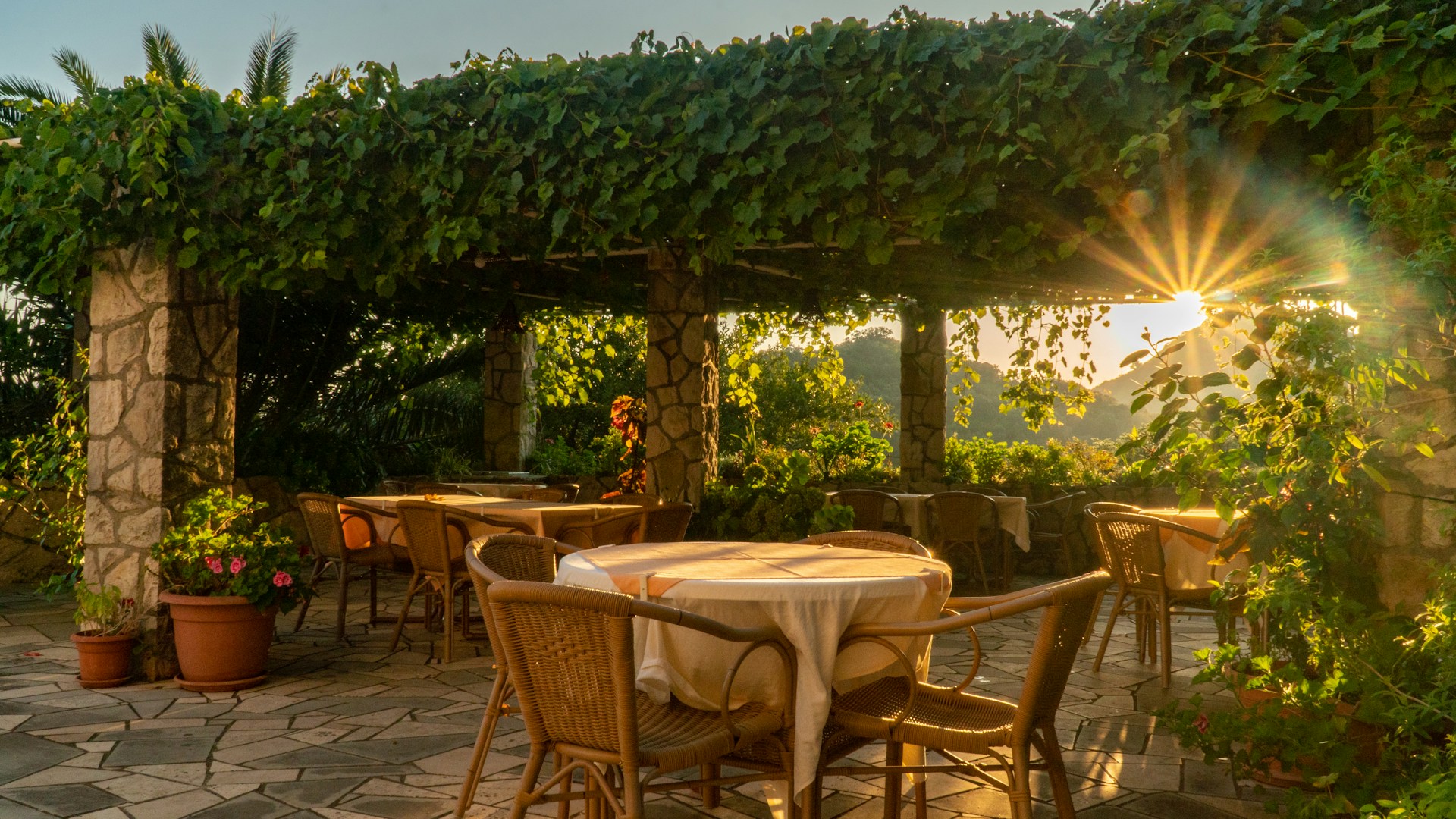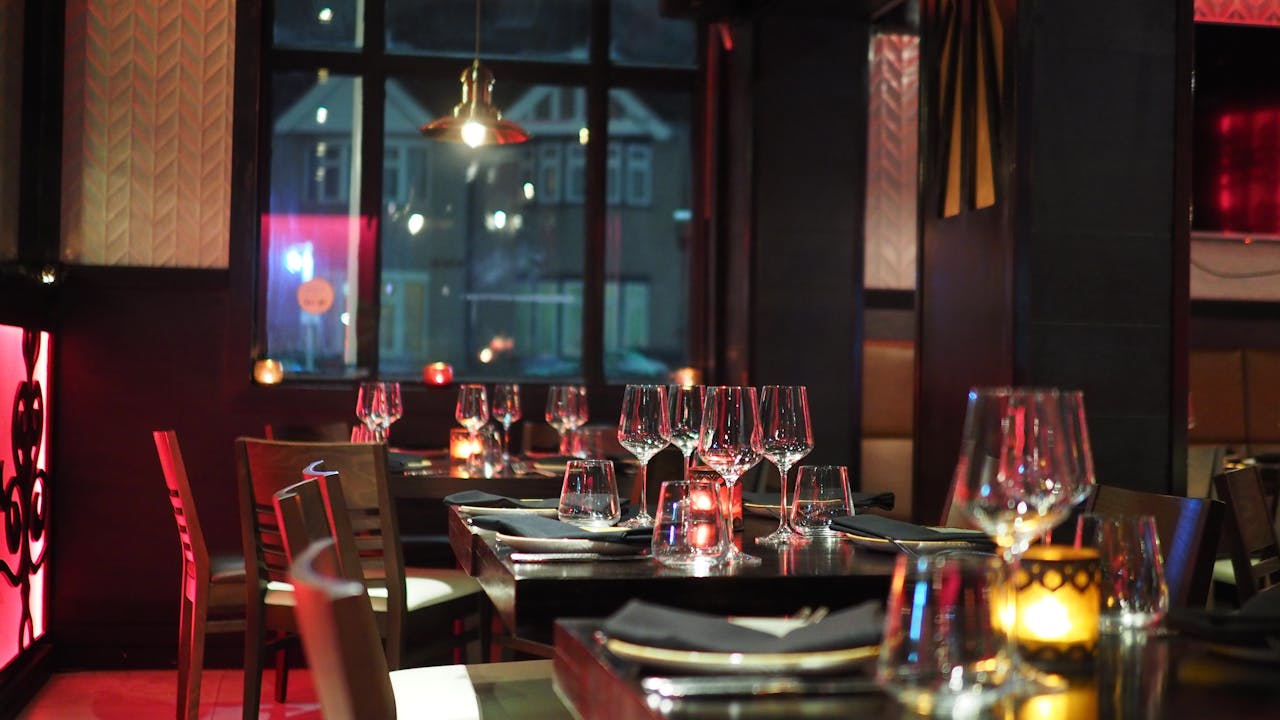Opening a restaurant in Dallas requires coordination with multiple city agencies overseeing different aspects of food service operations. Restaurant building permits Dallas processes involve both health safety approvals and construction compliance oversight.
The Consumer Health Division manages Food Establishment Permits and coordinates all health inspections, while the Sustainable Development & Construction office handles building permits, construction plan reviews, and ongoing building inspections. The Texas Department of State Health Services provides additional state-level retail food permitting for most establishments, creating a comprehensive regulatory framework that addresses construction feasibility, health safety standards, and operational compliance across multiple jurisdictions.
Which Permits, Licenses, And Certifications Does A Dallas Restaurant Need?
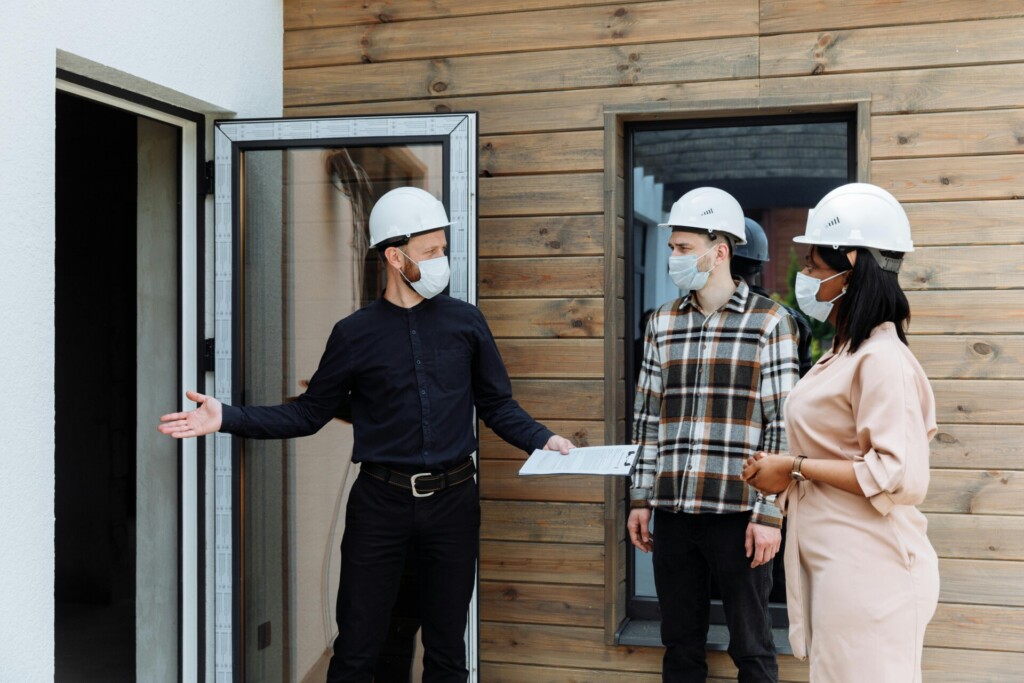
Dallas restaurants require multiple permits and certifications from local, state, and federal agencies. We work with each authority to secure the necessary approvals before construction begins and throughout the operational phase.
City-Level Requirements
Dallas Food Establishment Permit serves as the primary local health authorization for restaurants and retail food establishments. The application requires a valid government-issued photo ID, the facility owner’s Texas sales tax and use permit, and a $121 application fee paid to the Consumer Health Division.
Annual permit fees depend on risk level and facility size. Risk Level One establishments pay $141 for facilities under 2,000 square feet or $155 for larger spaces. Risk Level Two operations face $283 and $308 respectively, while Risk Level Three facilities pay $468 or $513 based on square footage.
Building permits cover new construction, remodels, change of use, or ownership transfers. Since May 1, 2024, all commercial applications must be submitted online through the City’s Building Inspection system. Two identical plan sets showing construction details are required for review.
For kiosks and self-service establishments, the annual permit fee increases to $240, with an additional $205 plan review fee. These applications require commissary approval forms and must be processed at the specialized location on Goforth Road.
State And Federal Certifications
Texas DSHS Retail Food Permit applies to most food service establishments unless specifically exempted. Fees range from $250 to $750 based on gross annual food sales, creating a tiered system that scales with business size.
Certified Food Manager certification becomes mandatory under Dallas City Code Chapter 17. The establishment must have a valid food service manager at the time of permit approval, ensuring proper food safety oversight from day one.
Food Handler Certifications apply to all individuals involved in food preparation and service. Each employee handling food must complete this training within specified timeframes after hiring.
Sales Tax ID Number registration with the Texas Comptroller remains essential for tax compliance. This state-level requirement enables proper sales tax collection and remittance throughout operations.
How Do You Sequence The Dallas Restaurant Permit Process?
Navigating Dallas restaurant permits requires precise timing and coordination between multiple city departments. We approach each project by establishing the proper sequence that prevents delays and ensures smooth approval workflows.
The process begins with securing health department approvals before any construction activity. Apply for a Food Establishment Permit at the Oak Cliff Municipal Center (320 E. Jefferson) as the foundation step. This permit serves as your gateway to Building Inspection plan submission and demonstrates health department coordination from project inception.
Plan Submission And Documentation Requirements
Plan submission demands two identical plan sets that detail floor layouts, fixture placements, room finishes, and critical infrastructure elements like floor and hub drains. Commercial projects require online submission through the city’s digital platform, reflecting Dallas’s shift toward streamlined electronic processing since May 2024.
Certain projects demand sealed plans from licensed engineers or architects, particularly those involving structural modifications or complex mechanical systems. We coordinate with design professionals early to ensure plan completeness and avoid revision cycles that extend review timeframes.
Building Plan Review Timeframes
The Sustainable Development & Construction office reviews plans for code compliance and zoning adherence with established timeframes that vary by project complexity. Residential projects typically complete first-round reviews within 1-3 business days, while commercial remodels average approximately 12 business days.
New commercial construction projects require 20 or more business days for comprehensive review, given their complexity and coordination requirements. Dallas offers Q-Team expedited review services for projects requiring accelerated approval schedules, though additional fees apply for this premium service.
Inspection Coordination And Scheduling
Inspection scheduling operates on dual tracks requiring coordination between health and building departments. Health inspections begin after Food Establishment Permit application submission, with applicants responsible for scheduling these critical reviews with their assigned permitting inspector.
Building inspections follow construction phases, with permit holders managing inspection requests throughout the build process. We coordinate these schedules to maintain project momentum while ensuring all regulatory touchpoints receive proper attention and documentation.
Ownership Changes And Remodel Considerations
Ownership transitions or substantial remodeling trigger specific filing requirements with the Consumer Health Division. New applications become mandatory when ownership changes, operational nature shifts, or extensive renovations occur, with all equipment and facilities required to meet current Chapter 17 compliance standards.
Ownership change approvals operate under strict 30-day processing requirements from application submission. We manage these timelines carefully to prevent operational disruptions and ensure seamless transitions for restaurant operations.
What Construction And Equipment Standards Must Plans Meet?
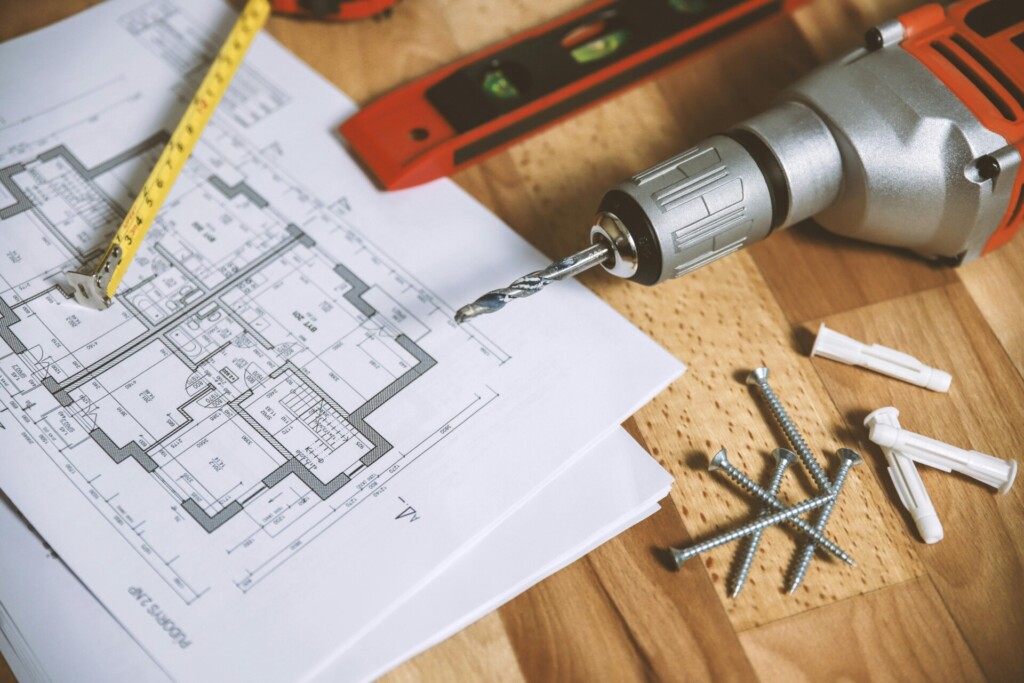
Restaurant construction in Dallas requires strict adherence to Chapter 17 Food and Drug Code standards that govern every aspect of the build-out. We coordinate with health inspectors throughout the construction process to ensure all systems meet commercial food service requirements before final approval.
Building Envelope And Structural Requirements
Exterior doors must be self-closing and tight-fitting to prevent rodent and insect infiltration. We install proper sealing mechanisms and verify that all building openings comply with pest-proofing standards. Utility lines require installation within floors, walls, or ceilings rather than exposed floor mounting, which creates sanitation hazards and code violations.
Window installations need proper screening or self-closing mechanisms for service windows. We ensure all penetrations through the building envelope maintain structural integrity while meeting food safety requirements for pest exclusion.
Interior Finishes And Surface Standards
Food preparation areas, utensil washing zones, and restrooms require smooth, non-absorbent, and easily cleanable surfaces throughout. We specify materials like sealed concrete, terrazzo, ceramic tile, or quarry tile for flooring systems. All floors must grade properly to trapped floor drains to eliminate standing water that creates sanitation issues.
Wall finishes in food handling areas need rigid, high-density materials such as fiberglass-reinforced plastic panels, ceramic tile, or stainless steel. Grouting requires non-absorbent compounds impregnated with epoxy, silicone, or polyurethane. Light-colored surfaces throughout kitchen and dishwashing areas facilitate cleaning and inspection processes.
Ceiling construction demands smooth, non-absorbent materials or T-type lay-in acoustical tiles. We avoid materials that can harbor contaminants or create cleaning difficulties in commercial food environments.
Plumbing Systems And Water Protection
Handwash sinks must be positioned within 25 unobstructed linear feet of food handling and utensil washing work areas. We calculate distances carefully since doors constitute obstructions that violate accessibility requirements. Three-compartment sinks or commercial dishwashers meeting National Sanitation Foundation standards handle utensil washing requirements.
Bar operations require four-compartment stainless steel sinks with attached drain boards. We install separate utility sinks at minimum 14-inch depth for cleaning operations. Hot and cold water systems connect through mixing valves, and metered faucets are prohibited in food handling areas.
Backflow prevention devices protect potable water supplies from contamination. Air gaps require installation at food contact equipment including preparation sinks, ice bins, and ice machines. We position drains adjacent to equipment that discharges waste to prevent backup issues and maintain sanitary conditions.
Commercial Equipment Specifications
All food service equipment must meet or exceed NSF or equivalent commercial standards. We mount equipment on six-inch bullet legs, casters, sealed floor connections, or smooth concrete platforms with minimum two-inch height clearance. Proper spacing between walls and equipment enables thorough cleaning access.
Domestic ranges and refrigerators are prohibited in commercial food establishments. Temperature-controlled holding equipment requires adequate capacity with numerically scaled thermometers for monitoring. We specify commercial-grade units designed for continuous food service operations rather than residential applications.
Remote equipment like water heaters, refrigerator compressors, and HVAC units cannot be located in food preparation or utensil washing areas. Fire suppression equipment needs installation outside these zones or within smooth, easily cleanable metal enclosures.
Ventilation And Lighting Systems
Vented hoods with removable filters are mandatory over all cooking surfaces and must comply with mechanical code requirements. We coordinate with Building Department Technical Services for proper sizing based on equipment specifications and kitchen layout.
Lighting intensity standards require 50 foot-candles at surfaces where food preparation and utensil washing occur. Other areas need minimum 10 foot-candles measured 30 inches above floor level. Light fixtures in food areas require shatterproof bulbs, protective shields, or tuff-coating to prevent glass contamination.
Walk-in refrigeration and dry storage areas maintain the 10 foot-candle standard during cleaning operations. Heat lamps need protective shields extending beyond the bulb while leaving only the face exposed for proper function.
Grease Management Systems
Grease traps are preferably located outside the building to serve all sinks, dishwashers, and floor drains in food preparation areas. When exterior placement isn’t feasible, we install flush-floor mounted traps with sealed lids outside food preparation zones. Building Department Technical Services handles sizing calculations based on kitchen equipment loads and drainage requirements.
Proper grease management prevents plumbing system failures and maintains compliance with municipal waste discharge regulations. We coordinate trap installation with plumbing and mechanical code requirements during the construction phase.
Food Contact Surface Materials
Food contact surfaces require non-corrosive materials such as stainless steel or anodized aluminum. Painted surfaces, laminated wood, and galvanized materials are prohibited for direct food contact applications. We specify appropriate materials that withstand commercial cleaning chemicals and frequent sanitization.
Exposed wood or particleboard cannot be used in food preparation, utensil washing, or walk-in refrigerator areas. Limited exceptions exist for hard rock maple cutting blocks and baker’s tables that meet specific density and treatment standards. Non-food contact surfaces exposed to splash or frequent cleaning require smooth, washable materials with minimal ledges or crevices that harbor contaminants.
What Fees, Renewals, Inspections, And Deadlines Apply?
Restaurant permit fees in Dallas operate on a tiered system based on risk levels and facility size. We work within these established fee structures when planning projects and advising clients on budget requirements. The upfront application fee remains consistent, but annual permit costs vary significantly depending on the complexity of food service operations.
The City requires a $121 application fee at submission, along with a valid photo ID and the facility owner’s Texas sales tax and use permit. Annual health permit fees follow a three-tier risk assessment structure. Risk Level One establishments pay $141 for facilities 2,000 square feet or smaller, or $155 for larger spaces. Risk Level Two operations face higher fees at $283 and $308 respectively, while Risk Level Three establishments pay $468 for smaller facilities and $513 for those exceeding 2,000 square feet.
Additional fees apply throughout the permitting process. Pre-inspection services cost $100, while plan review fees reach $200. The City’s fee guidelines also list application fees at $300, with annual permits ranging from $350 for facilities under 2,000 square feet to $425 for larger operations. Properties housing multiple food establishments face additional costs, with second facilities in the same building charged $300 or $400 depending on size.
Critical Renewal Deadlines
Annual permits expire on December 31st each year. We emphasize this deadline to all restaurant clients because missing it triggers immediate penalties. Properties that submit renewal applications after December 31st face an additional $199 reinstatement fee on top of the standard permit cost.
The penalty structure escalates quickly for late renewals. Establishments that fail to remit both the reinstatement fee and permit fee by January 30th incur an additional $158 pre-closure fee. This creates a potential $357 penalty structure for properties that miss the year-end deadline by just one month. We’ve seen this catch restaurant operators off guard, particularly during busy holiday periods when administrative tasks often get deferred.
Inspection Requirements And Re-Inspection Fees
Health inspection scheduling falls to the applicant, who must coordinate directly with their assigned permitting inspector after application submission. Building inspections during construction follow the same applicant-driven scheduling approach. We manage these coordination requirements for our clients to ensure inspections align with construction milestones.
Re-inspection fees apply when health inspection scores fall below 80%. The $191 re-inspection fee serves as both a revenue mechanism and quality enforcement tool. We work closely with restaurant operators during pre-opening phases to address potential compliance issues before the initial inspection, reducing the likelihood of failed scores and additional fees.
Payment Methods And Contact Information
The Consumer Health Division accepts credit cards, debit cards, checks, and money orders but does not accept cash payments. This policy simplifies record-keeping but requires advance planning for permit fee payments. The Consumer Health Division operates from 8 am to 12 pm and 1 pm to 4 pm at (214) 670-8083. Building Inspection and Plan Review services are located at 320 E. Jefferson Blvd., with general inquiries handled at (214) 948-4480.
These contact points become essential during active construction projects. We maintain direct relationships with both departments to expedite communications and resolve issues that arise during plan review or inspection phases. Having these numbers readily available prevents delays when questions emerge during construction or permitting processes.
Conclusion and Next Steps

Successfully navigating Dallas restaurant permitting requires coordinated action across multiple agencies and deadlines. We approach each project by establishing clear timelines that account for both Consumer Health Division requirements and Building Inspection processes, ensuring our clients avoid costly delays and compliance issues.
The foundation starts with securing your City Food Establishment Permit at the Oak Cliff Municipal Center before any construction begins. We then coordinate the online submission of building permits for commercial projects, ensuring plans meet Chapter 17 construction standards from day one. Our experience shows that budgeting for the full spectrum of fees—application costs, plan review charges, and ongoing annual health permits—prevents surprises during the approval process. Remember that annual permits renew on December 31st, and missing this deadline triggers additional reinstatement and pre-closure fees that can impact your operations.
Ready to navigate Dallas restaurant permitting with confidence? Contact EB3 Construction to ensure your project meets all requirements from permit application through final inspection.

